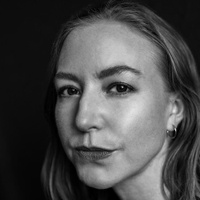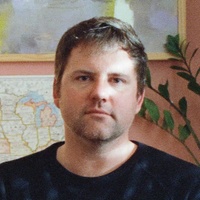As told to Elle Nash, 2798 words.
Tags: Writing, Editing, Publishing, Day jobs, Business, Money, Collaboration, Inspiration, Identity.
On getting your work out into the world
Writer, editor, and publisher Margot Atwell discusses the challenges of publishing and promoting books, the importance of being heard, and helping others find the resources needed for creative workYou started as a literary agent assistant, and then you did publicity work, off to publishing and now the work that you do for Feminist Press. Can you tell me just a bit of that timeline and that background?
I’ve always been a reader and loved books, and as soon as I realized that there was a job between writing and people reading books, that’s what I wanted to do. I worked on a literary magazine in high school and I co-founded one at Smith College called Labrys. Then my first full-time job in publishing was at the Irene Skolnick Literary Agency as her assistant.
I always wanted to be on the publishing side and see how that part worked. So, I spent seven years at Beaufort Books, originally as managing editor then publisher. I really had to learn on the fly and teach myself the job, and build an understanding of how you acquire, edit, publish, and promote books.
I went to Kickstarter and was their publishing specialist, which turned into the publishing outreach job. I got to work with authors, publishers, literary journals, and journalists and all sorts of other folks, comics artists, and help them raise money and build community around their creative projects. Which is kind of the tooth fairy for books and creative people. So that was an amazing job. I did that in some way or another for about eight years.
I just joined Feminist Press six months ago because I was looking for a new challenge, something where I could continue to grow and build new skills. When an old friend told me that The Feminist Press was looking for an executive director and publisher, it seemed like a real dream job. And so far it has been.
What is it that makes executive directing different from being a publisher? Do you find a big difference?
I think one of the biggest differences in the role I have now from when I was at Beaufort is that Feminist Press is a nonprofit publisher, whereas Beaufort was a for-profit publisher. Executive Director is a role that oversees everything in a similar way to publisher, but there are a lot more nonprofit related areas of focus, like collaborating with the board, making sure our finances are above board and transparent, overseeing grant applications. The U.S. doesn’t have a ton of public funding for the arts. I think we should have 20 times what we have, if not more. But we do have some. And those grants like the NEA, some New York State funding and others, the Jerome Foundation, those sources of funding are an absolute lifeline for independent presses.
It seems since your background with Kickstarter was about helping people find funding, being able to do that for a nonprofit is probably really affirming in some way.
Yeah, it’s exciting to think about how to raise funds and build community for an organization that is 52 years old. We’ve been publishing feminist literature for that long, and really publishing intersectional works by marginalized writers and promoting them and supporting their careers for a lot longer than many publishers. Figuring out how to tell the story of Feminist Press and bridge the history into the present and our vision for the future in a way that excites people to give money to us. It’s a new challenge. One I feel like I have a lot of the tools for, but it’s definitely requiring me to stretch and grow and be creative.
Can you tell me a little bit about the vision for Feminist Press for the future? What excited you about the opportunity, and what’s important about having a non-profit publishing company that focuses on the voices of marginalized people, especially in the United States?
The vision of Feminist Press is to create a world where everyone sees themselves reflected in a book. I think that’s so beautiful and necessary. As a queer person growing up in the ’80s and ’90s, I did not see myself reflected in any books or media. And in fact, I didn’t understand a lot about myself, because I didn’t see any examples of who I was or things that resonated with me. And I think we’ve come a long way since then in terms of representation. But I think that we can always do more and better, create more nuanced pictures of the possibilities for people, create more representation at the intersections of identity, for example. I feel like that’s something that publishing isn’t great about. Like, “Oh, okay, we can have a book by queer a person. We can have a book by a Black person. We can have a book by an Indigenous person or a disabled person.”
But the idea of someone who is all of those things, it’s like, “Oh, well that feels very niche.” Being an independent nonprofit publisher allows us, thanks to the generosity of public funding and our donors, to take risks on voices that don’t seem marketable and publish the types of books that will be so meaningful to readers. I think anyone who is a reader has had the experience hopefully of seeing something and just being like, “Oh my god, that’s me or this piece of me, I just identify with this so much.” It’s Feminist Press’ mission to make that possible and to share so many more ideas that are at the margins of what society thinks is marketable, financially viable or “normal.”
What are the unique challenges to marketing and doing publicity for Feminist Press’ most recent anthology, It Came From The Closet, and what are some ways your team has overcome them?
There are a lot of systemic challenges for all book publishers. It’s not new to talk about the reduced coverage for books in newspapers or different media outlets. We’ve seen a lot of consolidation among newspapers and media outlets, and a lot of them have gone under or merged in ways that mean that there’s just less space to talk about books than there used to be. Or there are still people writing, but maybe they’re writing for smaller audiences on a blog instead. I think there used to be a little bit more of a clear roadmap for how to promote a book.
But on the flip side, social media and blogging and newsletters and direct reader connection has gotten so much easier and more possible than it used to be without a huge budget. So think the internet has been in a lot of ways a democratizing force for publishing. At the same time, the business models of tech giants can change really rapidly. So for example, if you build your audience on a social media platform and then they decide to monetize, they’ve changed the rules, and now they’re trying to sell your own audience back to you, that creates a huge challenge for publishers, especially smaller publishers with tiny budgets.
I was reading a little bit of your coverage on the Penguin Random House/Simon & Schuster trial, and I wanted to ask about creative funding in terms of the importance of it, what it means to you to find and successfully connect makers with creative funding and some of the challenges of getting projects funded in the United States in the wake of the merger trial?
The amount of money the U.S. spends on public funding for the arts is so infinitesimal compared to other countries or the size of our budget. Compared to a corporate budget or our tax base, or what we spend on the military, it [amounts to] a rounding error.
I think even if we’re not going to talk about the cultural and social importance of art, which is massive, just thinking about the kinds of jobs and tourism and community that arts facilitate, we should invest more in it. One of America’s greatest exports is our cultural production. So, I think it’s shortsighted in either direction not to fund the arts more robustly.
I want to talk about your experience of funding and publishing your own book, Derby Life, through Kickstarter. There’s often this debate in writer world that whether self-publishing is valid or whether it’s not. I think the thing that is really beautiful about Kickstarter, for example, is that it proves that it can be valid and you can get paid for it. You can even end up having it be more successful than it would have had you gone through maybe a smaller independent publisher. Could you talk a little bit about your decision to do that and maybe the process and maybe even how you feel about self-publishing now?
I think that a lot of writers, myself included, we’re always looking for validation that our work is good and meaningful. For many writers, as you’re spending dozens or hundreds or thousands of hours writing your book, there’s that winning-the-lottery-publishing-success-story dream in the back of your head: “I find an agent and they sell it to Penguin Random House and Simon & Schuster and it goes on to sell a million copies and I’m on Oprah.” That kind of dream of financial success, accolades, visibility and the ability to just write going forward, I think many people dream of that. But I think that you have to be really practical and intentional about your plans for publication when you’re a writer.
I think that the part of what’s hard about the industry for writers is that writing is a hobby, it’s a dream. It can also be a career. In publishing, the industry feels like it holds the keys to the success that you want and that there are all these gatekeepers. But most writers aren’t like full-time professional writers. Then the publishing industry is an industry like any other. So there are all these profit motives and ways things work that are not aligned with always getting the best out of everything. Or what I’m trying to say, I guess, is that when the dreams of a writer who has invested a ton of their time and heart and skill in making something they want to share with the world crash against the realities of a business such as book publishing, it can be a recipe for disillusionment and disappointment. Book publishing is a very old, traditional industry with a lot of strangeness around how it works.
It’s not super transparent how the business of publishing works to writers. There are people who are writing newsletters and tweeting, to try to demystify the world of publishing for writers, and I think they do a great job. But all of that is to say I knew a lot about book publishing because I’d been in the industry for eight plus years when I went to publish Derby Life. I understood that if I wasn’t going to be able to sell more than 3,000 copies of that book, it didn’t make sense for a book publisher, even an indie book publisher to do it.
And also, if I were going to sell 3,000 copies, I would make a lot more money if I did it on my own. Unlike most writers I had or could fairly easily find all the resources I needed to do a decent job of self-publishing the book. There’s a really steep learning curve, and I had learned it in my last job. So, I was set up for self-publishing success in a way that a lot of writers are not. Ultimately I made the decision to publish it the way I did using Kickstarter to fund it and publishing it myself. I wanted to make a really specific book for a community I knew inside and out. I knew how to reach them. I knew that if I published with a traditional publisher, they would have strong ideas about how it should be done.
Maybe some of them would have been right, but some of them might have been wrong, because I had friends who were publishing roller derby-related books at the same time with traditional publishers. They were getting pushback on the cover image or the title or things like that. I just felt like I had the tools I needed to do the book the way I thought it should be done. Using Kickstarter to fund it and tell the world about it, enabled me to say, “Hey, I’m this person. I’m doing this thing. Here’s why I think it’s cool. Does anyone agree with me? If you want a copy chip in 25 bucks and I’ll send you one in a year or two.” And people did. It was a resounding yes. I would have been over the moon if the 256 or so backers of that project had been the only ones to ever read it.
But that was just the first life of the book. After it came out, I sold it at RollerCon, I sold it at East Coast Roller Derby Extravaganza. I sold it at a museum in Texas and it went on to have its own life out in the world. I still get interviewed and I still get people telling me that they read the book and it was meaningful to them, and I published it in 2015. So yeah, I got to do it exactly my way and I’m really proud of that. I don’t think the book would have been the book I wanted it to be if I had compromised and gone somewhere else with it.
When I hear you talk about your story, it feels very brave. My first book was with a small publisher and I’m so grateful for them, but I remember having that first writer disillusionment of, when I got my first royalty statement. Like, “The book made how much for the publisher?” Almost the amount of a salary, but I made about a month of rent in a small urban town. I understand there are distribution and printing costs and returns to consider, but early on, that was a shock to me.
I know exactly what you mean. I was working on a book about money and publishing. It was called, Don’t Steal This Book: Why Paying for Words is Radical and Necessary. I wrote a proposal, I got an agent, we went out on submission. We got two offers quite quickly. I didn’t expect a big advance, nor was I offered one. But to me the royalty rate was the issue, for exactly the reason you mentioned. If I were going to put all this time and effort into writing the book, using my platform to market it, speaking at conferences, things like that, I wanted the publisher to recoup their costs and be able to pay their staff and everything. But I wanted, after they had earned back their investment, to earn a substantial chunk of the upside if the book did really well, and I was going to work really hard and make it do really well. They balked at that, they said, “Take it or leave it.” So I left it.
Good for you.
That’s something I’ve been thinking a lot about as I’ve stepped into this role at Feminist Press. How do I use our very limited resources to treat people fairly, whether they be our writers or our staff? It’s tough. I was working on budgets today. I think the answer I’m trying to go with is, do a better job selling our books, connecting with readers, building a fan base that comes back to us again and again. A lot of that is in place already. But I think the publishing industry is already seeing the tip of this iceberg. I think that there’s going to be a labor reckoning in book publishing the same way there has been in basically every other industry. And I think it’s really important that if we’re going to be a business and demand work from workers the way a business does, we need to compensate people fairly and treat them well. To me that’s the biggest challenge of working at an independent publisher: how do you make the pie big enough that everyone gets a decent slice?
Margot Atwell Recommends:
Five recent independently published books I love
Margaret and the Mystery of the Missing Body, Megan Milks (Feminist Press)
Ship of Fates, Caitlin Chung (Lanternfish Press)
Tink and Wendy, Kelly Ann Jacobson (Three Rooms Press)
Pretend It’s My Body, Luke Dani Blue (Feminist Press)
Scapegracers, H.A. Clarke (Erewhon Books)




